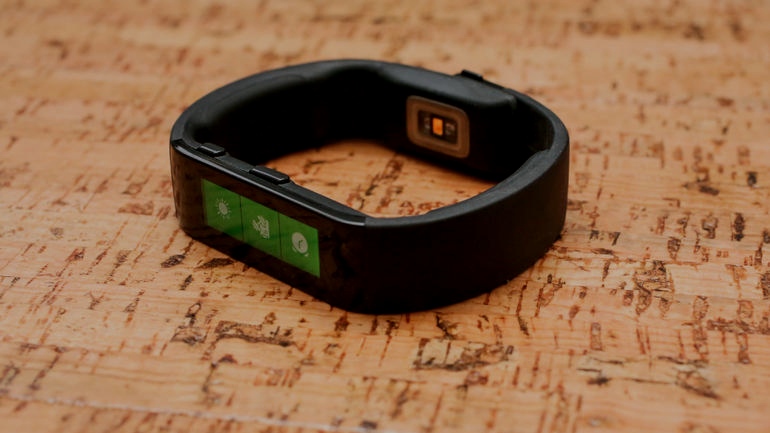
Microsoft Band A Bigger Hit Than Apple Watch?
The aggressive expansion of the [Microsoft] Band comes a month before the Apple Watch is expected to be shipped. And while consumers don’t appear to be excited about the Apple Watch, the Band has been an unexpected hit for Microsoft. Microsoft hasn’t disclosed sales numbers, but the product has been constantly out of stock in Microsoft Stores and available only for consumers who put their names on wait lists. Apple’s stock faltered after showing its watch last week.
In some ways, Apple is executing like the old and dominant Microsoft and Microsoft is executing as the resurgent Apple in the smartwatch race.
The Reuters/Ipsos poll cited above (details here) says that 69 percent of US respondents are a combination of “not at all interested” and “not very interested” in purchasing Apple Watch. Of course, that means that 31 percent of respondents are at least somewhat interested in purchasing Apple Watch, which extrapolates to roughly 98.9 million Americans. Also of note is that Apple Watch interest aligns with similar data re: iPad in 2010. Apple has sold 200 million iPads in five years.
Naturally, Microsoft won’t share Band production or sales figures, yet Krantz — whatever his motivation — is happy to declare that this uncomfortable beta test of a $200 fitness tracker is an “unexpected hit” that has, as his article’s title says, “outsmarted Apple Watch.”
As recently as November of last year, Microsoft was the second largest company in the world measured on market capitalization, behind only Apple. Why its adherents would measure its success in terms more befitting a brand like BlackBerry is beyond me. By Apple’s standards, Microsoft Band is a commercial failure, and I reckon it’ll move fewer units in its lifetime than Apple Watch will in its first month (week?) of retail availability.
I really hope people don’t visit USA Today’s Money page for investment advice.